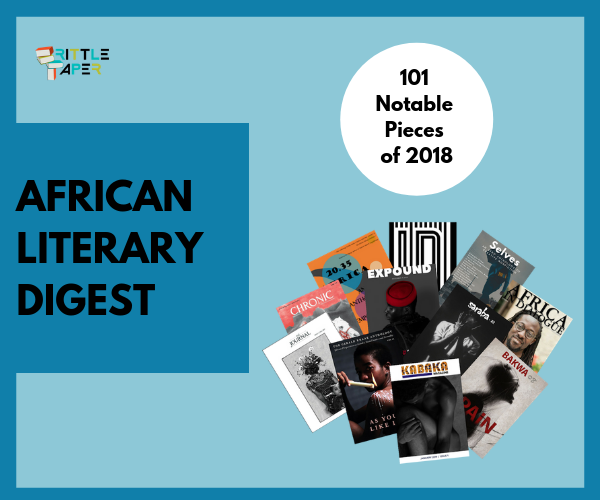
It was inevitable: compiling a list as monstrous as this would consume time, cause a delay. But here we are.
2018 came with its own firsts and highs. A new major publishing house came on board: The Indigo Press, founded by the distinguished Zimbabwean editor and critic Ellah Allfrey. A new major magazine: Kabaka, dedicated to publishing queer-centered writing, co-founded by the Nigerian poets Romeo Oriogun and Chibuihe Obi. And groundbreaking books were published: Trifonia Obono’s La Bastarda, the first English-language novel by a woman from Equatorial Guinea; Naivo’s Beyond the Rice Fields, the first novel from Madagascar to be translated into English.
In 2016, our year-end list contained 32 pieces. For 2017, it was 79. As with those two lists, we wanted this one to tell a story of African Literature in 2018, to collect both the year’s notable and its finest. But what counts as “notable”? The subject? The context? The writer? The writing? In our consideration, we looked first at the writing. And again at the writing. And finally, at the subject and the context. We did not consider pieces that do not engage directly and primarily with our literary culture, that are not channeled into asking or answering questions about literary conversations.
Books are not considered for this list (Check out the list of our 48 Notable Books of 2018). Only pieces published or made available online in 2018 were considered. But we usually make an exception: for pieces published before the year but which came into focus during the year. Also not considered are pieces that aren’t accessible for free online, given that our hope with this is to create conversations about the state of our literary culture: What is happening? How can we engage with what is happening?
READ: THE BRITTLE PAPER AFRICAN LITERARY DIGEST: 32 NOTABLE PIECES OF 2016
READ: THE BRITTLE PAPER AFRICAN LITERARY DIGEST: 79 NOTABLE PIECES OF 2017
Our list for 2018 is divided into five categories:
- Fiction
- Creative Nonfiction
- Poetry
- Conversations & Profiles
- Essays, Think Pieces, & Speeches
In the secondary research for this, the Nigerian writers Kanyinsola Olorunninsola and Ada Nnadi were instrumental: we thank them.
From the editors of Brittle Paper, an invitation to these ideas in dialogue:
_________________________________________________________________________
Fiction
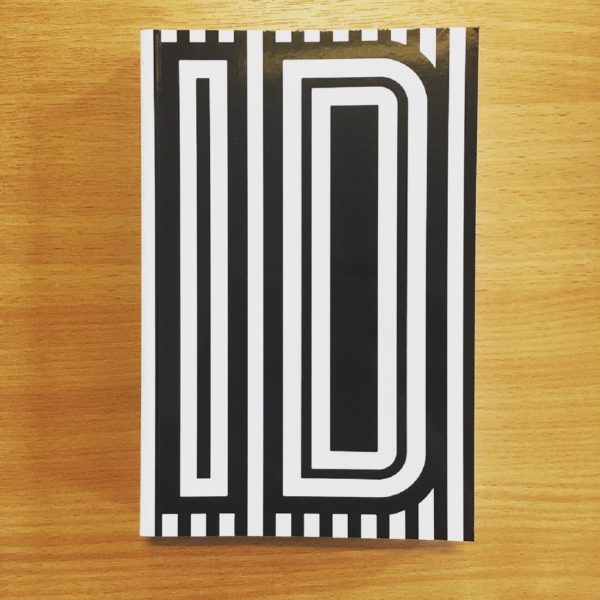
“Involution,” by Stacy Hardy (South Africa), in Migrations: New Short Fiction from Africa
The female sex organ is an incongruous character in this piece of fabulist fiction. The young woman’s curiosity to know her body part is intriguing and sustained. Innovative. Winner of the 2018 Brittle Paper Award for Fiction.
“The Man at the Bridge,” by Kiprop Kimutai (Kenya), in As You Like It, republished in The Johannesburg Review of Books
A nuanced, memorable portrayal of a man caught between the lure of his male lover and quaking sex, on the one hand, and a marriage wearing him down with a wife trying to keep his interest. A snapshot of culture-fostered gender dynamics. Shortlisted for the 2018 Brittle Paper Award for Fiction.
“Naming,” by Umar Turaki (Nigeria), in Afreada
A car, broken down on the road at night, is used as a setting for the characters as the omniscient narrator creates a profile for all five of them, divulging their past, present, and unfortunate future.
“Moon Secrets,” by Lauri Kubuitsile (Botswana), in The Single Story Foundation Journal
In smooth, competent prose, a middle-aged woman, who experience has taught to be wary of people, guards a life-defining secret that stands between her and the man who loves her. Shortlisted for the 2018 Brittle Paper Award for Fiction.
“All Our Lives,” by Tochukwu Emmanuel Okafor (Nigeria), in ID: New Short Fiction from Africa, republished in The Johannesburg Review of Books
An embracing sweep, told in a first-person plural voice, of the lives of young men whose destinies are tied, from their childhoods to their changed, fought-for adulthoods, whose dreams are multiple and their routes to them illegal. Winner of the 2017 Short Story Day Africa Prize. Shortlisted for the 2018 Brittle Paper Award for Fiction.
“Our Husband Grief,” by Christine Odeph (Kenya), in Migrations: New Short Fiction from Africa (as “My Sister’s Husband”), republished in Brittle Paper
A pungent immersion in a breaking family’s tragedy, through the eyes of a deceased daughter in the days up to her burial, that is also an exploration of mourning and changing and changed relationships. Shortlisted for the 2018 Brittle Paper Award for Fiction.
“True Happiness,” by Efua Traore (Nigeria & Germany), in Granta
Told in Pidgin English, this is a young person’s pursuit of doing the right thing to obtain happiness and a sketch of their religious and familial life. Winner of the 2018 Commonwealth Short Story Prize for Africa Region.
“Fanta Blackurrant,” by Makena Onjerika (Kenya), in Wasafiri
Told by a street child who, in struggling to make a living, is turned to sex trade and theft and subsequently meets assault. Winner of the 2018 Caine Prize.
“Sturdy Man with Shaggy Beard,” by Ucheoma Onwutuebe (Nigeria), in Bakwa
A story of longing, love, and the headiness and lows that come with them.
_________________________________________________________________________
Creative Nonfiction
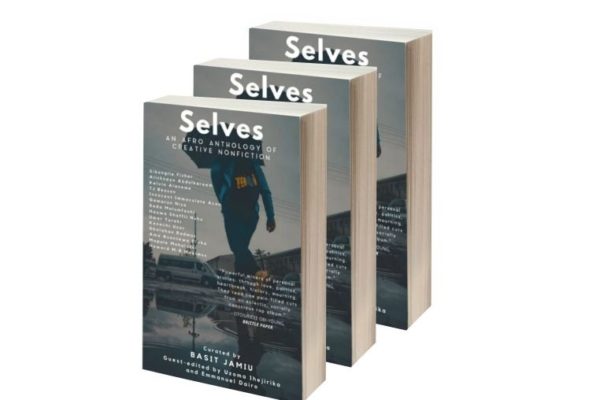
“On Meeting Toni Morrison,” by Sarah Ladipo Manyika (Nigeria), in Transition
In the calm of her home, one of our leading novelists sits with one of literature’s great storytellers and lets us, in beautiful prose un-sinking under the weight of awareness, into what can only be appreciated as a holy literary communion across generations. Shortlisted for the 2018 Brittle Paper Award for Creative Nonfiction.
“The Miseducation of Gratitude,” by Sibongile Fisher (South Africa), in Selves: An Afro Anthology of Creative Nonfiction, published online in Enkare Review
This sure-footed, poetic, track-by-track reinterpretation and claiming of Lauryn Hill’s 1998 album is a soulbreaking autobiography of love, motherhood, family, and wounds. It is literary confessionality at its most bare. Winner of the 2018 Brittle Paper Award for Creative Nonfiction.
“A House for Mr Soyinka,” by Kola Tubosun (Nigeria), in Popula
A visit to Wole Soyinka’s refreshing, art-filled house deep in the Abeokuta forest leads to a revealing portrait of a cultural great on the boundary between—to use Teju Cole’s phrasing elsewhere—the contemporary and the historical. Shortlisted for the 2018 Brittle Paper Award for Creative Nonfiction.
“Na for Sell,” by Basit Jamiu (Nigeria), in Saraba
In Lokoja, with two girls gathering firewood as it focus, a reflection on photographs and frozen moments and how their interpretation varies with each audience.
“An African in London and Other Reflections on African Literatures,” by Richard Oduor Oduku (Kenya), in Brittle Paper
A journey from Nairobi to London, shadowed by the Kenyan elections; an account of SOAS’ commemorative conference to mark 55 years since Makerere. An important reflection on contemporary engagement of literary history and cultural production. Shortlisted for the 2018 Brittle Paper Anniversary Award.
“Transition,” by Akwaeke Emezi (Nigeria), in The Cut
A detailing of the author’s non-binary transgender identity.
“Letter From Zaria,” by Pwaangulongii Dauod (Nigeria), in Granta
Between solitude and loneliness, the fragility of human relationships and the writer’s dilemma with his writing process.
“Home Means Nothing to Me,” by Tinashe Mushakavanhu in collaboration with Nontsikelelo Mutiti and Simba Mafundikwa (Zimbabwe), in Chimurenga
The life and movements of Dambudzo Marechera in Harare, between 1982 and 1987, on his return to Zimbabwe after forced exile in the United Kingdom, are documented in this excitingly innovative mapping project that speaks to the late great writer’s mythology and spirit as well as corrects misconceptions about his work and person. Shortlisted for the 2018 Brittle Paper Award for Creative Nonfiction.
“My Great-Grandfather, the Nigerian Slave-Trader,” by Adaobi Tricia Nwaubani (Nigeria), in The New Yorker
A personal account of the Trans-Atlantic Slave Trade as perpetuated by the writer’s great-grandfather, and of the burden of a family name. It wasn’t exactly embraced by all of its readers.
“The Old Man Who Fought Boko Haram,” by Tolu Daniel (Nigeria), in Catapult
Between two people who have never had a conversation but frequently see each other, a one-sided connection is formed, tangible enough for the writer to feel apprehension, poignancy, and then grief at the other person’s sudden absence.
_________________________________________________________________________
Poetry
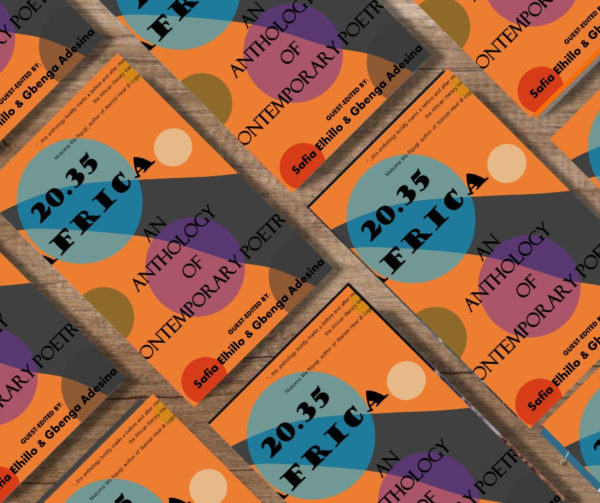
“A List of Things I Do Not Tell My Mother,” by Sarah Lubala (South Africa & Congo), in Apogee Journal
Brief, controlled contemplations on girlhood, the body, sex, religion, and the ineluctable problem of attraction. Shortlisted for the 2018 Brittle Paper Award for Poetry.
“A Field, any Field,” by Itiola Jones (Nigeria), in The Offing
An alluring tussle with the body and betrayal, and with the irreducible draw of lust, rendered in memorable language strewn with metaphors. Winner of the 2018 Brittle Paper Award for Poetry.
“Origin Myths,” by Megan Ross (South Africa), in The Single Story Foundation Journal
A sum of motherhoods across generations, a meditation on familial bonds and how they shape familiarity, love, loneliness, and private violences. Shortlisted for the 2018 Brittle Paper Award for Poetry.
“On the Isle of Lesbos,” by Tsitsi Jaji (Zimbabwe), in Harvard Review
A haunting reflection on the Syrian refugee crises. Shortlisted for the 2018 Brittle Paper Award for Poetry.
“I Like to Think I’d Yet Manage to Weave Words into Poems,” by Chisom Okafor (Nigeria), in Expound
Vignettes of a child touched by an adult, of something lost and its knowledge fully gained, sprinkled in rhythmic register. Shortlisted for the 2018 Brittle Paper Award for Poetry.
“Summer Night Spent Cosplaying Ashanti & Ja Rule Or Something Else Resembling Happiness,” by Momtaza Mehri (Somalia & UK), in Frontier Poetry
In mostly short lines demonstrating the thrill of indefinite language, a romantic relationship’s downs are splayed. Shortlisted for the 2018 Brittle Paper Award for Poetry.
“How to Build a Barbecue on Saturday Night,” by Chisom Okafor (Nigeria), in Brittle Paper
With mouthwatering metaphors and arresting imagery, we are invited to dinner. An exploration of the politics of food and a culinary career. Shortlisted for the 2018 Brittle Paper Anniversary Award.
“Boy Lolita,” by Logan February (Nigeria), in Kabaka
In new LGBTQ literary magazine Kabaka‘s first publication, a focus on loving quietly in the dark with the world out there, hunting you.
“Jambula Tree,” by Lillian Aujo (Uganda), in Brittle Paper
A brief, staying sketch of how women conform to patriarchy, become performers in and for it. Shortlisted for the 2018 Brittle Paper Anniversary Award.
“Aubade with Notes on DNA,” by JK Anowe (Nigeria), in Palette Poetry
In his signature stream of consciousness, an intricate offering of skill, emotion, and haunting love.
“Reincarnation,” by Afua Ansong (Ghana & USA), in 20.35 Africa: An Anthology of Contemporary Poetry
A mystical portrait that abandons any pretense of realism. A sort of rebirth—or multiplication—among generations of womanhood.
“A House That Does Bad Things to Me,” by Saddiq Dzukogi (Nigeria), in Kenyon Review
An unflinching use of imagery in this monologue by a girl whose body is home to war and intimate violence.
“Federal,” by Liyou Libsekal (Ethiopia), in 20.35 Africa: An Anthology of Contemporary Poetry
Quiet but powerful in its focus on a familiar but larger-than-life figure fading into the ancient.
“The Last Prayer,” by Chibuihe Obi (Nigeria), in Guernica
A spiritual reclamation of the body.
“When They Ask What My Name Means,” by Gloria Kiconco (Uganda), in 20.35 Africa: An Anthology of Contemporary Poetry
An exploration of the symbolism of naming, how it can become the core of our existence, and the erasure of women’s names [and by extension, existence].
_________________________________________________________________________
Conversations & Profiles
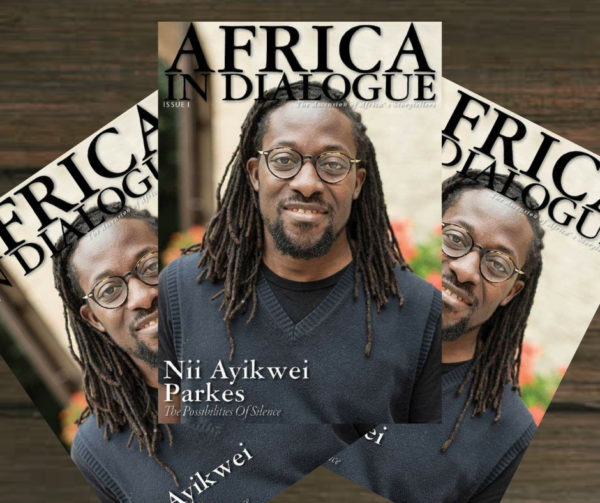
“Preserving and Writing History”: Ayesha Harruna Attah (Ghana) in Conversation with Gaamangwe Joy Mogami (Botswana), in Africa in Dialogue
A conversation on Attah’s third novel The Hundred Wells of Salaga (2018) and its engagement of the slave trade in 1890s Ghana, the intergenerational trauma of the present day, and the possibilities of fantasy in historical fiction.
“The Future of African Poetry“: Kwame Dawes (Ghana) and Chris Abani (Nigeria) in Conversation with Dami Ajayi (Nigeria), in The Mantle
On the influence of African Poetry Book Fund’s (APBF) New Generation African Poetry Series and the visibility of underrepresented voices in the poetry scene.
“The African Writer’s Dilemma“: Sarah Ladipo Manyika (Nigeria), Namwali Serpell (Zambia), and Siyanda Mohutsiwa (Botswana) in Conversation, in The Stoop Podcast
Hosted by Hana Baba and Leila Day, an illuminating reflection on the state of African publishing, book covers, stereotypes in marketing African books, the problem of asking African writers about their intended audience, the small space carved out for black women even in literary podcasting, and the fresh ideas of Cassava Republic, “the BET of publishing.”
“A Celebration of Orthodoxy, Mediocrity and Exhausted Cliches”: Ikhide Ikheloa (Nigeria) in Conversation with Cynthia Osuchukwu (Nigeria), in Syn City NG
Characteristically intrepid and unflinching, a questioning of the reasoning behind the Caine Prize shortlists and of the relevance of the prize itself.
“Meditations on the Traumas and Triumphs of Zimbabwe’s Histories“: Novuyo Rosa Tshuma (Zimbabwe) and Panashe Chigumadzi (Zimbabwe) in Conversation, in The Johannesburg Review of Books
While acknowledging the feverish pulse of the Zimbabwean political atmosphere as it nears the elections, a delve into the country’s bloody history, classist politics of faux liberation, and intergenerational trauma.
“Whose Streets? A Conversation About Walking“: Aminatta Forna (Sierra Leone & Scotland) and Taiye Selasi (Ghana), in Literary Hub, first published in Freeman’s
A conversation about spaces and the courage it takes to inhabit them in spite of the way marginalised groups—women, in this context—are bullied into shrinking themselves. A haunting reflection on the burden of simply existing in a world that would rather erase you.
“A Brief History of 14“: Rapum Kambili (Nigeria) in Conversation with Gaamangwe Mogami (Botswana), in Africa in Dialogue
The editor-in-chief of Nigeria’s first LGBTQ art collective talks about a project that has created visibility through its two well received anthologies, We Are Flowers (2017) and The Inward Gaze (2018).
“A Childhood in Exile Created a Life of Activism“: A Profile of Sisonke Msimang (South Africa), in The Wall Street Journal
A recognition of the circumstances behind the Always Another Country memoirist’s delve into social justice causes.
“On So the Path Does Not Die and the ‘Vibrant’ Sierra Leonean Literary Scene”: Pede Hollist (Sierra Leone) in Conversation with James Murua (Kenya), in The Johannesburg Review of Books
With one of our leading bloggers, the 2014 Caine Prize finalist discusses the reception of his novel, the perceived elitism of the African Literature Association, and the present state of Sierra Leonean writing.
“Contemplation Is African“: Teju Cole (Nigeria) in Conversation with Kunle Ajibade (Nigeria), in Premium Times
Two veterans, one of literature, the other of journalism, deliver a vast, deep exchange that, in Cole’s rich oeuvre of conversations, stands out. An intellectual recap of Cole’s work in which almost everything is touched, from his perceived Afro-pessimism, his characterisation of Lagos and New York, to John Berger’s influence on him, having VS Naipaul and Philip Roth love his work, ideas of music, and—ah!—the relationship between his fiction and photography.
“A Brief History of Enkare Review“: Carey Baraka (Kenya) in Conversation with Gaamangwe Mogami (Botswana), in Africa in Dialogue
The story of the founding and working of a promising new, major literary magazine, before recent unfortunate incidents.
“I Like Writing Male Characters—I Don’t Have to Get Them Home Safely at the End of the Chapter“: Interview with Aminatta Forna, in The Johannesburg Review of Books
A riveting dialogue about facticity in historical fiction, her fascination with mental health, and the responsibility of artistic honesty a writer has towards her readers.
“The Non-confrontational Question That Helps Men Become Feminists”: Interview with Mukoma wa Ngugi (Kenya), in Quartz
A focus on masculinity and its problems, his identity as a feminist, the need for more men to be aware of gender inequality and varying gender experiences, the interconnectedness of political, social, and economic struggles, and books he believes can help men understand gender inequality better, including Women, Race, and Class by Angela Davis, Woman at Point Zero by Nawal El Saadawi, Kindred by Octavia Bulter, Sister Outsider by Audre Lorde, Assata: An Autobiography by Assata Shakur, and Minna Salami’s blog Ms Afropolitan.
“How Market FiftyFour’s Focus on African Languages Impacts the Publishing Scene“: Interview with the Founders, Marthe van der Wolf and Melat G. Nigussie
The founders of Market FiftyFour, a new platform aiming to resurrect the dying tradition of writing in African languages in the post-colonial age, talk about the significance of Ngugi wa Thiong’o’s work, the availability of books in local tongues, and the literary consumption capacity of the continent’s non-European languages speakers.
“Out of the Chamber of Death“: In Conversation with Patrice Nganang (Cameroon), in The Village Square Journal
In this account of the reality of Cameroon’s Anglophone crisis, an activist narrates his traumatic experience in prison following his public critique of the Cameroonian government. It is a quintessential instance of a tyranny on the loose.
“We are Made of All the Things We Have Consumed“: Interview with Teju Cole, in Literary Hub
An expatiation on his book of text and photography, Blind Spot, the inaccessibility of incomplete history, and how exposure shapes us and what we create.
“A Brief History of She Called Me Woman“: Chitra Nagarajan and Rafeeat Aliyu (Nigeria) in Conversation with Gaamangwe Mogami (Botswana), in Africa in Dialogue
Cassava Republic’s release of She Called Me Woman: Nigeria’s Queer Women Speak opened the terrain for queer women in Nigeria. The anthology’s editors talk about their curatorial process.
“Good Fiction Is Never Far from the Truth“: Nuruddin Farah (Somalia) in Conversation with Kunle Ajibade (Nigeria), in Premium Times
For his headlining event at the 2018 Ake Festival, the revered novelist talks about his childhood, early reading and foray into creative writing, his criticism of Al Shabaab in Knots, Crossbones, and North of Dawn, the lies against Islam told by terrorists, his critique of patriarchy and misogyny in From a Crooked Rib, his exiling from Somalia, and his outlook on the world.
_________________________________________________________________________
Essays, Think Pieces, & Speeches
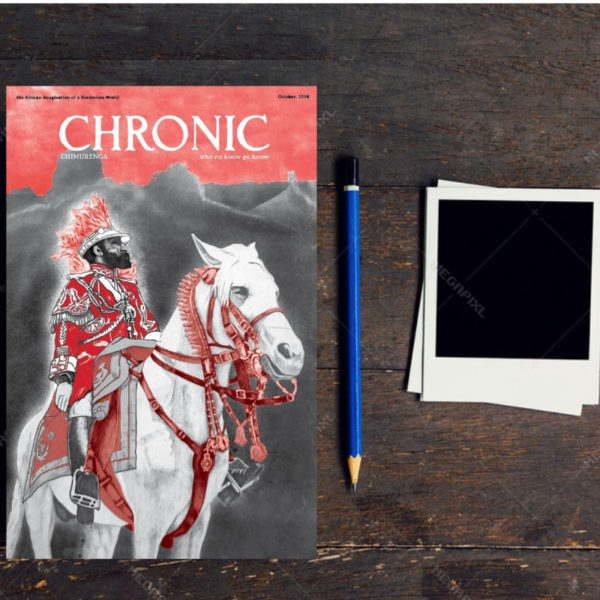
“How Short Story Day Africa Became the Continent’s Most Important Institution for Short Fiction”: in Brittle Paper
The story of the founding, the changes undergone, and the overall impact of Africa’s most important institution for short fiction—its prize, its anthologies, its workshops. More than anything, the work here represents the need for the kind of committed literary journalism that can tell our stories, particularly the stories of African institutions building from the grassroots.
“A Seminal Catalyst of African Speculative Fiction: Three Thoughts on Nnedi Okorafor’s Who Fears Death,” by Thando Njovane (South Africa), in The Johannesburg Review of Books
An analysis of Nnedi Okorafor’s World Fantasy Award-winning feminist, dystopian novella Who Fears Death revealing how it defined current tropes, including the handling of biology and violence, in African Speculative Fiction.
“Archival Fever,” by Bibi Bakare-Yusuf (Nigeria), in Dipsaus
In her enthralling, urgent keynote address at the 2018 Abantu Festival, the Cassava Republic co-founder details her entry into publishing, the scarcity of promotion for African books, the erasure of literary voices not anointed in the West, the need for writers to promote other writers, and a major case for the creation of an African publishing and literary media infrastructure.
“Please Stop Talking About “The Rise” of African Science Fiction,” by Tade Thompson (Nigeria), in Literary Hub
An argument against the condescension to and routine overlooking of the genre which culminates in celebrating its “rise” every few years. “Whenever I see an article that starts with ‘The Rise of. . .’ I think of dough. When it’s applied to African science fiction, I picture an endlessly rising (and falling) dough that will never become bread,” he writes. “Each ‘rise’ is celebrated but ephemeral, existing only until the next event that is itself seen as a ‘rise’ without reference to what has gone before, leaving the field oddly ahistorical to the uninitiated.”
“After LIPFest and Aké Festival, What Next for the Upcoming Nigerian Poet?” by Ebenezer Agu (Nigeria), in Brittle Paper
A frank expression of a growing disillusionment with Nigerian literary festivals and their perceived culture of exclusivity that offers ways to ensure long-term inclusion for new poets.
“Emerging from Chinua Achebe’s Shadow: Nigeria’s First Generation of Post-Independence Writers and the Literary Brotherhood of Umuahia,” by Lebohang Mojapelo (South Africa), in The Johannesburg Review of Books
To mark the 60th anniversary of Things Fall Apart, a review of Terri Ochiagha’s Achebe and Friends at Umuahia: The Making of a Literary Elite, a book focusing on the late novelist’s secondary school education at Government School, Umuahia, where he met, among other notable writers, Chukwuemeka Ike, Chike Momah, Elechi Amadi, and the author herself. In its consideration of the eventual community they formed, the book references these contemporaries’ divergence in ideology and style.
“A Few Words for African Nationalists,” by Faith Adiele (Nigeria), in Brittle Paper, first published in print in Ake Review
An experience of sexual harassment by a male Nigerian writer at a literary conference in Europe and the burden of intersectionality carried by those who possess multiple oppressed identities. With this piece, #MeToo was supposed to fully hit literary Africa. It did not.
“My Year of Reading African Women,” by Gary Younge (UK), in The Guardian UK
An overview of the thematic breadths of novels including those by Maaza Mengiste, Laila Lalami, Doreen Baingana, Lola Shoneyin, Ahdaf Soueif, Nawal El Saadawi, Imbolo Mbue, Chibundu Onuzo, Jennifer Nansubuga Makumbi, Aminatta Forna, Nadifa Mohamed, NoViolet Bulawayo, Ayobami Adebayo, and Yaa Gyasi.
“Bantu’s Swahili, or How to Steal a Language from Africa,” by Kamau Muiga (Kenya), in Brittle Paper
A historiographical rebuttal of claims that Swahili language has its roots outside Africa. An informative, even entertaining, read.
“On Postcolonial Theory,” by Shailja Patel (Kenya), Twitter
Following Chimamanda Adichie’s controversial remarks on post-colonial theory, Patel responds in a series of tweets, making a case for the historical significance and irreducible relevance of the discipline.
“Gods of Fiction: African Writers and the Fantasy of Power,” by Ainehi Edoro (Nigeria), in Africa Is a Country
A cautioning argument against the foisting of didacticism on African literature and its readers. A warning of the pedestal the African writer is placed on with their supposed role as teacher. Predictably, it caused some storm.
“Where is Hausa Queer Writing?” by Sada Malumfashi (Nigeria), in Asymptote Journal
An analysis of queerness in Hausa writing, bringing to the forefront its constant censorship by government agencies on cultural and religious grounds.
“How to Write a Female Serial Killer,” by Oyinkan Braithwaite (Nigeria), in Vulture
A recommended read for those wondering how Oyinkan Braithwaite got the idea for her breakout novel My Sister, the Serial Killer.
“Brief Notes on Poems, Anti-poems, Sub-poems and Poem-like Things,” in Enkare Review
A witty, amusing notice to poet hopefuls aiming to receive an acceptance mail.
“Cleansing the Past and Restoring the Truthful Reality,” by Niq Mhlongo (South Africa), in Brittle Paper & The Johannesburg Review of Books
In his keynote speech at the BRICS 2017 Literary Forum, the author narrates his humorous experience during the launch of his debut book launch, highlighting new realities in South African reading and writing after Apartheid.
“On Abdulai Sila’s The Ultimate Tragedy,” by Efemia Chela (Zambia & Ghana), in The Johannesburg Review of Books
First published in Portuguese in 1995, the first novel from Guinea-Bissau to be translated into English, in 2017, is the subject of this reading in which its plot, characters, and its long gap between publication and translation are analyzed.
“What African Writers Can Learn from Cheikh Anta Diop,” by Boubacar Baris Diop (Senegal), in Chimurenga Chronic
A case for the normalisation of African writers expressing themselves in indigenous languages, with Cheikh Anta Diop’s work used as example.
“Achille Mbembe’s Fanonian Meditations,” by Sindre Bangstad (Norway), in Africa Is a Country
An analysis of the opinions of the Cameroonian intellectual Achille Mbembe on postcolonial theory with regards to black nationalistic identities, a reading built on the work of the Martinician-French philosopher Frantz Fanon.
“On Coetzee’s ‘Photographs from Boyhood’ Exhibition,” by Wamuwi Mbao (South Africa), in The Johannesburg Review of Books
A report of an exhibit of the South African-born, now-Australian novelist’s childhood photos. It muses on the necessity of the event and the nostalgia it affords its mostly White attendees.
“On Jose Eduardo Agualusa’s A General Theory of Oblivion,” by Efemia Chela (Zambia & Ghana), in The Johannesburg Review of Books
A reading of the 2017 International Dublin Literary Award-winning novel revolving around the Angolan War of Independence, its aftermath, and the travails of a woman barricaded in her own home as she waits out the war.
“In Praise of Keorapetse Kgositsile: Lion Among Men,” by Tsitsi Jaji (Zimbabwe), in Africa Is a Country
A tribute to one of South Africa’s greatest intellectuals, to his work and legacy.
“None But Ourselves,” by Percy Zvomuya, published in Chimurenga Chronic, excerpted in The Johannesburg Review of Books
An analysis of the “sonic cartography” of Zimbabwe’s independence struggle and war and the politics around it—a tracking the influences of chimurenga music and reggae on contemporary Zimdancehall.
“On Roland Rugero’s Baho!,” by Efemia Chela (Zambia & Ghana), in The Johannesburg Review of Books
Reading the first Burundian novel to be translated into English, the reviewer lets us into its intricacies, from its handling of ableism and justice to the question of ethnicity.
“Writing as an Act of Generosity,” by Mamadou Diallo (Senegal), in Chimurenga Chronic
Opening with the two opposing sides to the national language debate in Senegal—French, the relic of colonial assimilation, as the homogenous language for expression, and indigenous languages, Wolof, in this case, as being on par with it—we are introduced to Boubacar Boris Diop’s Doomi Golo and his ability to bring another point of view to history and inform a language’s power through the silent tenacity and revolutionary undertones of his work.
“Afrofuturism Is Not for Africans Living in Africa,” by Mohale Mashigo (South Africa), in The Johannesburg Review of Books
Considering variegated narratives of Africans living in Africa, this foreword to her collection of stories Intruders calls for the reimagining of a future particular to them, as Afrofuturism falls short of this task.
“They Won’t Go When I Go: A Manifesto/ Mediation on State of Black Archives in America and throughout the Diaspora,” by Harmony Holiday (USA), in Chimurenga Chronic
A chronicle of the systemic twisting, erasure, domestication and commercialisation of Black stories; a demands that Black history be properly chronicled and protected by the ones who care genuinely about its future.
“The Coming-Out of the African Same-Sex Novel,” by Lindsey Green-Simms (USA) and Brenna Munro (USA), in Africa Is a Country
As visibility for queer narratives in African literary spaces increases, this essay discusses the nuances of coming out with Uzodinma Iweala’s second novel Speak No Evil as its focal point.
“Five Questions from African Literature to Help You Reflect on 2018,” by Tadiwa Madenga (Zimbabwe), in OkayAfrica
A celebratory review of some notable books and pieces of African writing of the year. The important questions give crucial insight into the matters taking centre stage in the art of African writers.
“Wokeness and the Professional Outrage Machine,” by Hussein Badat (South Africa), in Africa Is a Country
Virtue signalling, identity politics, and call out culture are the subjects of this piece, with an emphasis on their ramifications and the stifling of progressive political conversations and the voices of those that really matter.
“The Unique Wordplay of Bushra al-Fadil,” by Lemya Shammat (Sudan), in ArabLit
An analysis of the works of 2017 Caine Prize winner Bushra Al Fadil, highlighting the Sudanese writer’s love for language subversion and stylistic experimentation.
“African Poets Get Their Own Documentary,” by Bhakti Shringarpure (Sudan & India), in Africa Is a Country
An appraisal of The Poets, a documentary film celebrating the friendship between the Nigerian poet Niyi Osundare and the Sierra Leonean poet Syl Cheney-Coker.
“Reflecting on Abdel Goddous Al-Khatim’s Reflections On Sudanese Culture,” by Lemya Shammat (Sudan), in ArabLit
A rumination on al-Khatim’s critique of Sudanese artistic and literary heritage and its place in the larger Arabophone world.
“Who Is More Left Than the Other? Growing McCarthyism and Fatima Bhutto’s Unfair Criticism of Chimamanda Ngozi Adichie,” by Tee Ngugi (Kenya), in Brittle Paper
A pungent criticism of the dogmatism and McCarthyism of contemporary Leftist politics spurred by a social-media-endorsed culture of groupthink and performative outrage, written in response to Fatima Bhutto’s criticism of Chimamanda Ngozi Adichie’s conversation with Hilary Clinton in The Guardian UK.
“A Brief History of Bakwa Magazine,” by Dzekashu MacViban (Cameroon), in Bakwa
A narration of the founding of one of the continent’s leading literary magazines and its role in Anglophone Cameroon.
“The Confessional Generation,” Introduction to Selves: An Afro Anthology of Creative Nonfiction
This essay captures the current pulse of young African writers, particularly their audacity to live as open wounds, unashamed of baring themselves through art.
“The Case for Lusophone African Literature,” by Yovanka Paquete (Guinea-Bissau), in OZY
This think piece initiates an important conversation about the visibility of Lusophone writing in African literary spaces and cultural markets. An analysis of colonial identity and the creation of linguistic borders.
“The Carnage of the Cameroons,” by Chimamanda Ngozi Adichie (Nigeria), in The New York Times
A rebuke of the Cameroonian government’s abject failure in resolving the Anglophone Crisis and the state-sanctioned oppression of the English-speaking citizenry.
“Erotica: Rules of Engagement When Asking Readers to Review Your Draft,” by Tiah Beautement (South Africa), in tiahbeautement.wordpress.com
An encouragement for African writers to explore erotica, one that recommends ways to avoid being offensive or invasive in doing so.
“The Man Booker Prizes, African Writers, and the Deceptive Politics of Identity,” by Nzube Ifechukwu (Nigeria), in Brittle Paper
An inculpating look at the Booker Foundation’s doctoring of the nationalities of African writers on its shortlists—with the writers’ connivance.
“Historical Fiction Is Back—with a Fire in Its Belly: How Writing Can Be a Powerful Tool for an Activist,” by Fred Khumalo (South Africa), in The Johannesburg Review of Books
A reflection on the therapeutic importance of historicity in fiction, with his novel Dancing the Death Drill as a reference.
“Reclaiming Africa’s Stolen Histories Through Fiction,” by Lizzy Attree (UK), in Los Angeles Review of Books
From Jennifer Makumbi’s Kintu and Yvonne Owuor’s Dust to Yaa Gyasi’s Homegoing, historical fiction is seeing a resurgence in African literature. This essay makes a case for its relevance.
“What the World Would Look Like if We Taught Girls to Rage,” by Mona Eltahawy (Egypt), in NBC News
In this sharp charge, one of our most prominent feminists challenges the toxic culture of softening girls and quietening their voices. She advocates for anger in women as a way to assert their humanity in a world which continues to disregard them.
“The Older Generation of African Literary Scholars and Their Obnoxious Idea of African Literary Tradition,” by Obinna Udenwe (Nigeria), in The Village Square Journal
The writer hits back at the censorship by a faction of the older generation of African writers who seek to limit contemporary artistic expressions in the name of conservatism.
“An Intimate Meditation on Motherhood and the Female Body,” by Mapule Mohulatsi (South Africa), in Brittle Paper
An essay on Megan Ross’ debut poetry collection Milk Fever—a celebration of motherhood and investigation of the transcendental essence of femininity—establishing an artistic and spiritual connection between it and Toni Morrison’s novel Beloved.
“Nigerian Media and the Deletion of Local Publishing Houses,” in cassavarepublic.biz
A publishing powerhouse speaks against the Nigerian media’s inclination to give spotlight to foreign publishing houses at the expense of their local counterparts.
“How Moroccan Crime Writing Reckons with a Brutal Regime,” by Paul French (UK), in Crime Reads
An extensive look at the historical development of the crime genre in Moroccan writing, in relation to the sociopolitical realities which have shaped its trajectory overtime.
“On the Brunel Prize, MFAs, and Africa-Based Poets,” by Michael Chiedoziem Chukwudera (Nigeria), in Brittle Paper
This critique of the Brunel International African Poetry Prize sheds light on the politics of representation, the problem of identity, and the untrue suggestion that Western-based African poets boast superior skill to African-based African poets.
“How Do You Advocate for LGBTQ Rights When Your Culture Doesn’t Have a Word for Gay?” by Trifonia Obono (Equatorial Guinea), in Electric Literature
Following the release of her LAMBDA Award-shortlisted debut novel La Bastarda, the first English-language novel by an Equatoguinean woman, the writer expresses frustration with the absence of appropriate, dignified nomenclature for queer identities in many African languages.
“Writing Like Degas Paints,” by Sulaiman Adonnai (Eritrea), in Granta
In this reminder of the power of the body to ignite artistic imagination and feed creative passion, interest in Degas’ representations of nude women lays the foundation for what he calls “the power of nudity”—not just a way of representing the body in art and writing but a way of experiencing and placing it with the context of performance.
“The Nervous Conditions of the Mother Tongue,” by Mapule Mohulatsi (South Africa), in Selves: An Afro Anthology of Creative Nonfiction
An ethno-lingual survey of her South African upbringing, reflecting remarkably on orality and the seminal power and inseparability of writing and the tongue. Shortlisted for the 2018 Brittle Paper Anniversary Award.


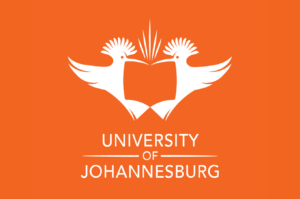



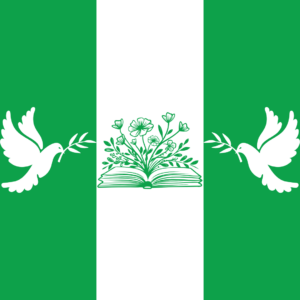


Otosirieze : Statement on Leaving Brittle Paper - April 15, 2020 10:59
[…] began regular blogging, launching an annual list of The Notable Pieces of the Year (2016, 2017, 2018). By March 2017, I was asked to temporarily be Acting Editor and take over the full running of the […]